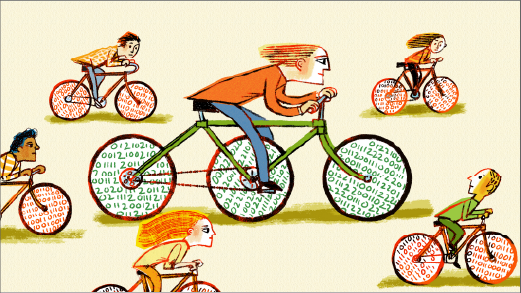Latest Articles
Quantum Speedup Found for Huge Class of Hard Problems
It’s been difficult to find important questions that quantum computers can answer faster than classical machines, but a new algorithm appears to do it for some critical optimization tasks.
Why Do Researchers Care About Small Language Models?
Larger models can pull off greater feats, but the accessibility and efficiency of smaller models make them attractive tools.
Debate May Help AI Models Converge on Truth
How do we know if a large language model is lying? Letting AI systems argue with each other may help expose the truth.
How Base 3 Computing Beats Binary
Long explored but infrequently embraced, base 3 computing may yet find a home in cybersecurity.
Avi Wigderson, Complexity Theory Pioneer, Wins Turing Award
The prolific researcher found deep connections between randomness and computation and spent a career influencing cryptographers, complexity researchers and more.
How Quickly Do Large Language Models Learn Unexpected Skills?
A new study suggests that so-called emergent abilities actually develop gradually and predictably, depending on how you measure them.
AI System Beats Chess Puzzles With ‘Artificial Brainstorming’
By bringing together disparate approaches, machines can reach a new level of creative problem-solving.
How to Build a Big Prime Number
A new algorithm brings together the advantages of randomness and deterministic processes to reliably construct large prime numbers.
Secret Messages Can Hide in AI-Generated Media
In steganography, an ordinary message masks the presence of a secret communication. Humans can never do it perfectly, but a new study shows it’s possible for machines.









